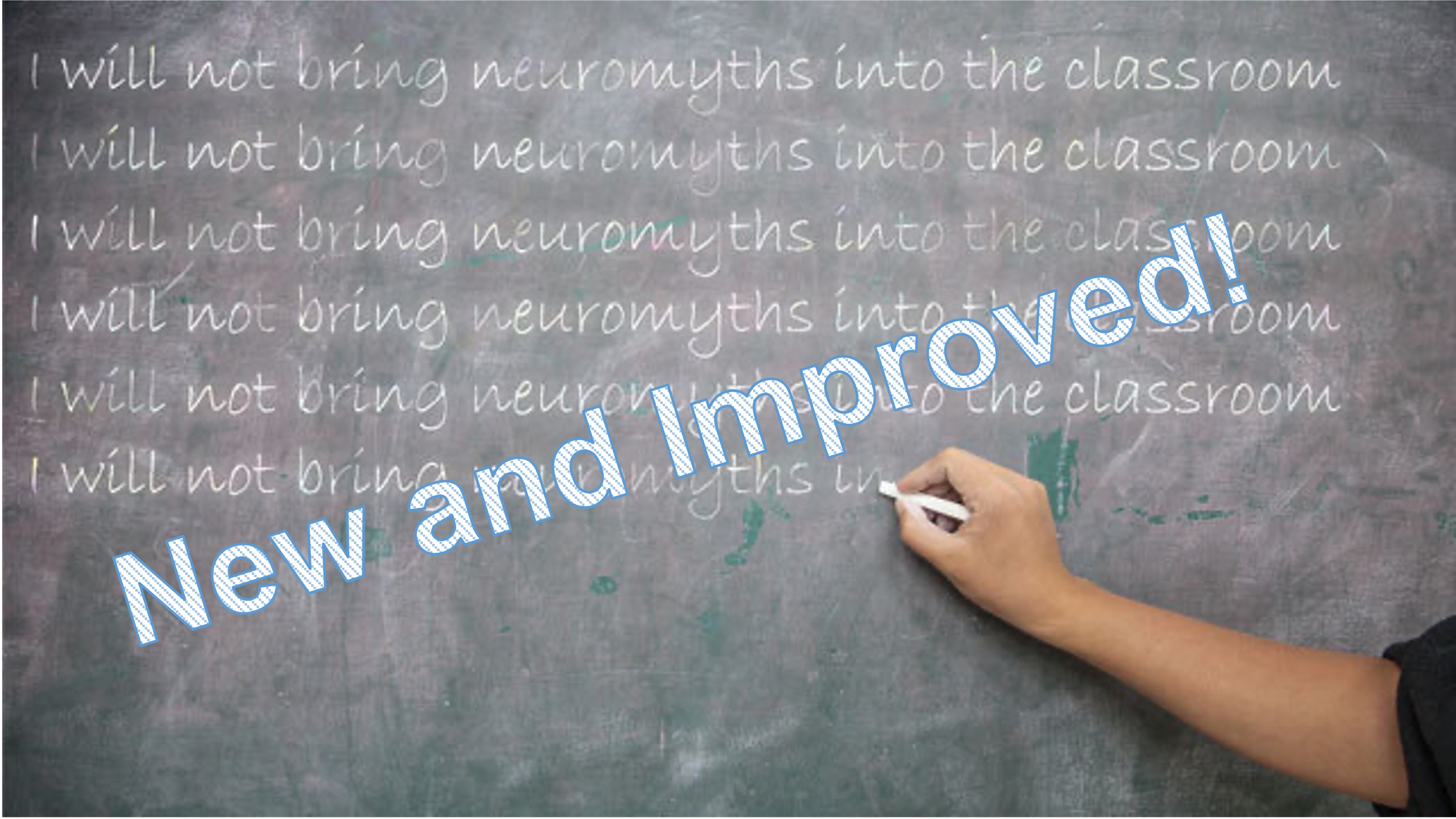
Our team has been hard at work updating our existing articles about common neuromyths (‘Neuro-hit or neuro-myth?’) to reflect the most up-to-date evidence. You’ll be relieved to hear that nothing has flipped from myth to fact or vice versa! So far, six articles have been updated, and the rest will follow over the coming months. Look out for the ‘Now Updated’ button to catch up on what the most current evidence is for each topic – some changes have been quite small, while other articles have had major rewrites!
Here are some highlights of the changes and additions:
- Is ADHD on the rise in UK schools? This article now reflects changes to the “Diagnostic and Statistical Manual [DSM]” – that’s how conditions are officially defined – which now allow individuals to be diagnosed with both ADHD and autism. We’ve added new content on contemporary research into sex differences in ADHD. The article also has a new title, a new image, and some rephrasing to improve inclusivity of the language.
- Diet makes a difference to learning. Our additions to this article include evidence regarding the links between breakfast consumption and GCSE point scores, and the longer-term effects of healthier diet.
- Mindfulness has a place in the classroom. We’ve extensively revised this article in light of evidence from a recent large-scale trial with teenagers in UK schools. The overall verdict has been changed to ‘It’s complicated’. Two outdated external resources have been removed and a newer resource on implementing mindfulness in schools has been added instead.
- Girls and boys have different cognitive abilities. Throughout the article, language has been changed to reflect distinctions between sex and gender roles present in contemporary literature, with a note defining how the terms ‘sex’ and ‘gender’ were used in the article. We’ve added references to new research on topics that include: eye gaze strategies and gender identity on tests of mental rotation; math anxiety; and the role of cultural gender-egalitarian values in academic achievement. Lastly, we’ve added a new resource from the Women and Equalities Committee featuring lots of reports on sex differences in education and employment.
- Well-rested children do better at school. We’ve added new findings on the role of delayed school start times in academic outcomes, sleep disruptions in neurodevelopmental conditions, and sleep benefits for explicit memory (i.e., learning facts!) in children.
- Learning two languages gives an advantage at school. This revised article now features some reframing of content regarding the debate over the potential bilingual advantage in executive functioning skills. We’ve also dug into some of the finer details of methods in the studies, considering the diversity of multilinguals as a group.
We hope you enjoy catching up on the new evidence as much as we have!
If you’re hungry for more neuromyths content, or perhaps a bit time-poor for a full article, we are also currently releasing a series of videos that distil the major points from these updated pages to less than a minute each. The videos will be going out on our Twitter (@UoL_CEN) and our brand new TikTok page (@educationalneuroscience). Take a look and let us know if you like them!
